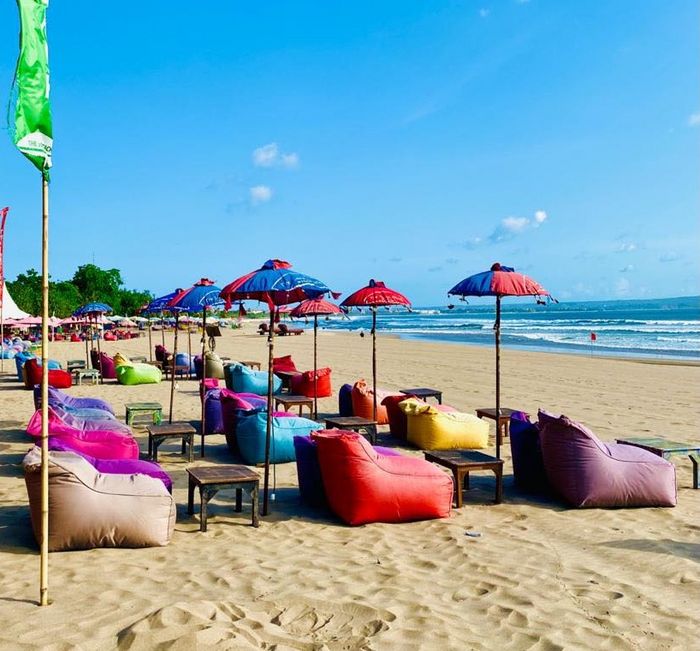In economic terms, 2019 was one of the best tourism years that Bali had ever seen. There were millions of tourists spending lots of money and there were many new venues opening and under construction. Employment and profit were at an all-time high. Fast forward to 2020 and the bustling streets and beaches are almost deserted. Some businesses have temporarily closed, and some have had to make the hard decision to close permanently. Balinese and other Indonesian workers have seen huge pay cuts and many job losses. With very little government support, both businesses and individuals have had to get creative and innovative to ensure their survival during this time.
Bali’s international borders have been closed to tourists since March 2020. Initially, no one thought the closure could have gone on as long as it has. In the beginning, most employers tried to maintain their staff to some degree. As time went on it became clearer that this border closure would continue for many months.
Developing creative solutions
Balinese being quite the entrepreneurs, almost overnight we saw a whole new wave of “micro businesses” set up in Bali. Services ranged from out of work kitchen staff producing and selling food from home, to shopping services for those who were still isolating or just liked the convenience of not going shopping. Ex hotel engineers setting up handyman services for residents, to tailors designing and producing masks for the venues starting to open. Many farmers who didn’t have businesses to sell their produce to set up make-shift stalls on the roadsides to sell their goods directly to the public. On the island of Nusa Lembongan, south-east of Bali, almost every resident started seaweed farming to earn a monthly income, while waiting for tourism to return.
In the last three months Bali has opened up for domestic tourism, giving a glimmer of hope to the island that so heavily relies upon tourism for employment. There has had to be some adaptions in order for business to attract the domestic market and appeal to their holiday wants and needs.
Collaborative spirit
Bali has seen many collaborations of businesses during this time to attract the domestic and local market. Whether it be chef collaborations from different venues at special events, to artisans running workshops at cafes and resorts, to fashion brands setting up popup shops at cafes and venues. ‘Staycation’ deals and day pass offers are available at many of the resorts and villas. They now have the space to cater to day visitors and to offer deals for Bali residents to take a weekend (or weekday) break.
With cinemas being still closed, many venues have taken to showing weekly outdoor movies. These have proved to be very popular with both the residents and domestic visitors. As domestic visitors and residents have all been seeking safe forms of entertainment, there also been comedy nights, bingo, thrift shop bazaars, quiz nights and “drive-in” concerts, all held in a bid to attract the domestic tourists and the local Bali and expat market, while adhering to the Government’s safety protocols of the ‘new normal’.
Bali venues have had to heavily discount their prices and carefully consider their menus to cater to the domestic market. Many hotels have special weekend packages for those travelling from other parts of Indonesia. There have also been a lot of hotels encouraging long term domestic tourists with long stay rates, online learning and working spaces set up within the resort, personal and group training options for kids and adults and child-minding services. With most of middle- and upper-class Indonesians working and schooling from home where possible, this strategy has proven very valuable. Bali has seen a large influx of Jakartan tourists, taking advantage of the deals on offer and being able to have a long island stay. There are many venues putting more of a focus on local dishes and some are setting up local food stalls by the beach to attract locals during sunset time when the beach is busy.
Becoming more sustainable
Businesses with enough cash have taken this opportunity to renovate their properties. There is definitely a stronger focus on ecotourism in the renovations, re-openings and new venues. There are many calls from both locals and foreigners in Bali for all businesses to reassess their environmental footprint and to make sustainable changes before Bali reopens internationally. The ‘Bye Bye Plastic Bags’ campaign set up by two teenagers several years ago, set in motion an entire Island movement that is helping Bali to become more eco-friendly. 2019 saw single-use plastic bags banned throughout Bali. Most venues have also stopped using plastic straws, opting for metal, bamboo, glass, casava & rice straw instead. Even grocery stores are taking up the no plastic challenge, packing their fruit and vegetables in banana leaves. It is the hope of many that Bali will continue down the track of becoming more sustainable and eco-friendlier when the borders reopen to international tourists.
The Balinese are extremely resilient when faced with challenges. They have faced threats to their booming tourist economy from terrorism, earthquakes and volcanoes and each time the island has proven to come out stronger. It is yet to be seen if the same will remain true this time. Perhaps focusing on a more sustainable Bali, rather than just a ‘busy’ Bali, will be the silver lining of the pandemic period. Even during their toughest challenge yet, locals, businesses and expats maintain a collaborative spirit.
Karlie Cummins is an Australian expat living in Bali with her family. She has run her online guide to Bali – Bali Buddies – for the past eight years and works with multiple businesses across the Island.



